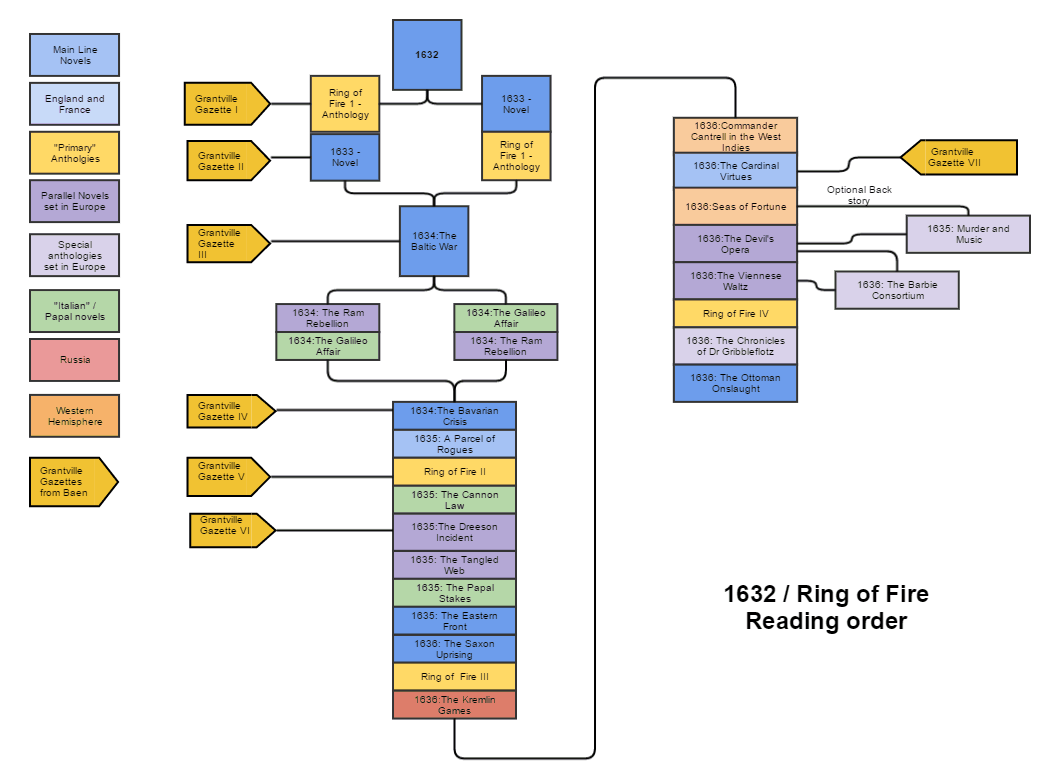Wolf of Badenoch
Donor
Forgive me if this question is answered elsewhere or if mention of Gville is by convention not to be mentioned but as a fan of the series I'm continuously irritated by the fact that Stuart England is virtually ignored. I can recall only one short story which references Charles I getting his retaliation in first by tracking down his future regicides.
Searches on the site disclose no timelines. Has no one done any work on this trope?
Searches on the site disclose no timelines. Has no one done any work on this trope?
